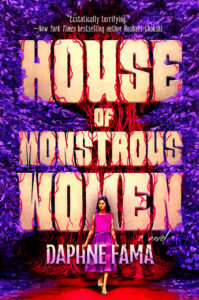I received four books recently that are all coming out in a new format today, with a fifth publishing next week. What better way to celebrate all five than with an exclusive round-up column!
 The first is the sequel to a crime debut I super loved for its investigator protagonist. Charlotte Vassell’s The In Crowd is now out in paperback, and continues the story of DI Caius Beauchamp as he solves crime while navigating the race and class politics of modern England. Here in the series’ sophomore novel, DI Beauchamp must investigate two cold cases which couldn’t possibly be related… or could they?
The first is the sequel to a crime debut I super loved for its investigator protagonist. Charlotte Vassell’s The In Crowd is now out in paperback, and continues the story of DI Caius Beauchamp as he solves crime while navigating the race and class politics of modern England. Here in the series’ sophomore novel, DI Beauchamp must investigate two cold cases which couldn’t possibly be related… or could they?
Early one morning, a men’s rowing team discovers a body floating face down in the Thames. Many years before, the chief executive of a clothing manufacturer walked off with a multi-million dollar corporate retirement fund and disappeared without a trace. Now, the discovery of this body forces that cold case to be reopened.
Meanwhile, DI Beauchamp has his own evening at the theater upended by the discovery of a corpse just a few seats away. Two decades ago, Eliza Chapel, a fourteen-year-old student at a girls’ boarding school in Cornwall, disappeared in the middle of the night under dubious circumstances. A second body means a second cold case reopened.
As DI Beauchamp — along with his associates Matt Chung and Amy Noakes — investigates these parallel missing persons cases, he finds himself ensnared in the unexpected political machinations of a duke-in-waiting. The deeply irritating Rupert Beauchamp (no relation, probably) returns in these pages, but I’m rather glad Nell doesn’t play a prominent role here, as I thought she was kind of a drip in the first book. Regardless, I’m looking forward to finding time to dive in and enjoy Caius, Matt and Amy’s company once more!









